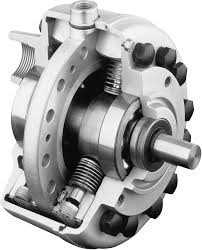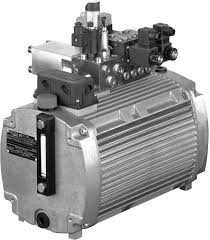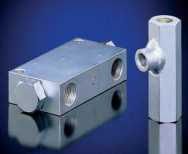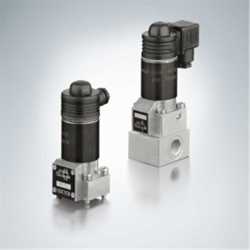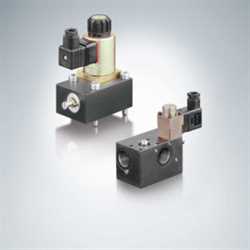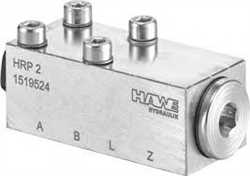Hawe WH 3 M-G 24 Valve
BRAND : Hawe
Details
The directional seated valves type WN and WH are are manifold mounting valves of compact design and feature 2/2-, 3/2-way functions. 2/2-, 3/2-way functions are possible by combining two individual valves on one joint sub-plate. These are also available combined as 3/3 and 4/3 directional seated valves.
The type WH contains an internal pressure balance. As a result, the permissible operating pressure is higher than the type WN.
Appropriate connection blocks enable direct pipe connection. The directional seated valves are available in a combination of valves in valve bank type BWN and BWH.
- All functionally important components, from the solenoid armature to the valve elements, are lubricated by the hydraulic fluid, therefore no maintenance is required.
- Type WN is only available as size 1. The armature cavity is pressure resistant up to 300 bar and directly connected to port R. This means that between the solenoid armature and the valve elements only a simple pin (with no seal) is required. This results in a very long service life (no seal wear). The solenoid force is largely dependent on the respective pressures to be switched. This often enables operation with reduced supply voltage thereby reducing the solenoid temperature and increasing its service life.
- Additionally to the directional seated valve versions of type WN, there is also a 4/2-way directional spool valve available (pmax = 300 bar).
- Type WH features an actuation pin between solenoid armature and valve elements which is sealed and shaped in such a way, that the solenoid force is supported by an additional hydraulic force. This enables pressure up to 450 bar (WH 1) or 350 bar (WH 2, 3 and 4) to be achieved.
For lubrication purposes and to equalize the volume, the armature cavity is either connected internally to the return port, or in case of 2/2-way valves connected externally to the return pipe (depending on application). Type WH 1 features larger valve elements and more stroke resulting in a reduced flow resistance than with WN 1.

